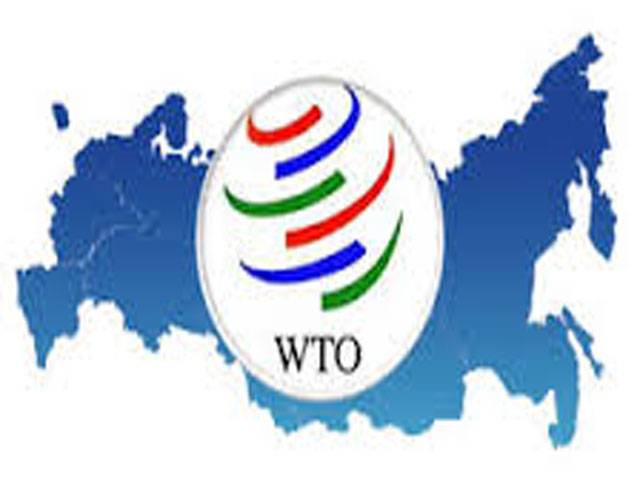LAHORE -With a view to initiate a process for better flow of trade of agri products, Pakistan can sign a separate ‘Bilateral Agriculture Trade Agreement (BATA)’ before awarding the status of NDMA/MFN to India as provided under article XXIV(11)of Gatt.1994.
This was observed by Farmers Associates Pakistan President Tariq Bucha while talking to The Nation.
He said that the 3rd meeting of the Agriculture Taskforce under the Joint Pakistan India Business Forum held in Lahore on Feb 15, 2014, agreed that BATA between the two countries will facilitate agri and food trade between the two countries.
He stated that it was agreed that the Taskforce will approach the governments on both the sides under the Pakistan India Joint Business Forum to ensure that all decisions on trade linkages, promotions and liberalizations would be done in line with the recommendations made by the Taskforce. It was also decided that the Agreement would be drafted and presented to the governments of the two countries. Such an agreement can then be evolved over time on lines of NAFTA, Brazil-Argentina etc, he added.
He said that the taskforce had agreed that the Agriculture is a sensitive sector for both the countries and contributes to a large proportion of the GDP (22% in the case of Pakistan and 14% in the case of India). Caution should be adopted in making mutually beneficially recommendations to the governments. As an integral part of the Bilateral Agriculture Trade Agreement (BATA) following interim measures were agreed:-
While the agreement is being formulated and comes into full force, the Taskforce should initially identify a ‘minimum agenda’ for the governments and ensure they are approved and implemented by the governments. Items that were mutually beneficial to both countries and should be freely allowed. For example: Tea, coffee, cotton, papaya, pineapple, pine nuts, soya bean, soya bean oil, palm oil, dates.
Items that are subject to a trigger mechanism. These mechanism would be: Season based- For example: mangoes, kinnow, guava etc could be allowed outside normal harvest time in each country- (Say 1st May to 30thJuly for Mangoes and 15th November to 28th February for Kinnow).
Price based- For example: Benchmark of minimum and maximum prices should be fixed by each government based on a reasonable margin above wholesale prices. Exports should be free if the price falls below the minimum and imports should be allowed automatically if the prices go above the maximum benchmark. This will ensure reasonable returns to the producers and bring stability to the market. Examples of such products are onion, tomato, etc.
According to Dr. Tariq Bucha, products were also identified for growth opportunities on both the sides. A list of products for Pakistan’s exports to India where Pakistan exports to the world, but not much to India and a list of products for India’s exports to Pakistan where India exports to the world, but not much to Pakistan. The lists of such products are provided in the annexure. The producers of both sides could examine windows of opportunities keeping in view these broad categories.
Tariq Bucha said that the Taskforce further recommended that both sides should reexamine their SPS standards to bring them at par so that they do not act as non-tariff barriers. The Standards and Inspection procedures for agricultural produce should be synchronized and an Agreement of Equivalence may be entered into.
Taskforce felt that there is a great need to increase cooperation in technology transfer and training. It had earlier recommended renewal of joint research and exchange programs between students and faculty Punjab Agriculture University Ludhiana and University of Agriculture Faisalabad. This could be put on a fast track.
Currently, farm machinery, equipment and greenhouse accessories etc. are not allowed to be traded by land route over Wagah- Attari border. For development of agriculture on both sides, this should be opened up. All Agri inputs including seeds and in-vitro planting material may also be allowed via Wagah-Attari land route.
The taskforce also suggested that an effective separate “Dispute Resolution Mechanism” needs to be worked out for agriculture produce and products trade, in view of its perishable and sensitive nature.
Taskforce also felt that a “Joint Monitoring Review Committee” comprising of Pakistan and Indian stakeholders (farmers) (members of Agriculture Taskforce) will have to be set up to regularly monitor trade and its impact on the agriculture of both countries.
Friday, April 19, 2024
WTO allows Pakistan to sign separate agri trade deal with India

Caption: WTO allows Pakistan to sign separate agri trade deal with India
Opposition objects to oath-taking of MNAs amid lawlessness
5:15 PM | April 19, 2024
Electioneering to end on Friday night ahead of by-polls in 21 constituencies
5:14 PM | April 19, 2024
Fawad Chaudhry granted bail in 14 cases related to May 9 violence
5:13 PM | April 19, 2024
British Army chief lauds Pakistan Army's professionalism, expertise
5:12 PM | April 19, 2024
Israeli aircraft fire missiles at Air Force assets in Iran: Report
3:52 PM | April 19, 2024
A Tense Neighbourhood
April 19, 2024
Dubai Underwater
April 19, 2024
X Debate Continues
April 19, 2024
Hepatitis Challenge
April 18, 2024
IMF Predictions
April 18, 2024
Kite tragedy
April 19, 2024
Discipline dilemma
April 19, 2024
Urgent plea
April 19, 2024
Justice denied
April 18, 2024
AI dilemmas unveiled
April 18, 2024
ePaper - Nawaiwaqt
Advertisement
Nawaiwaqt Group | Copyright © 2024





